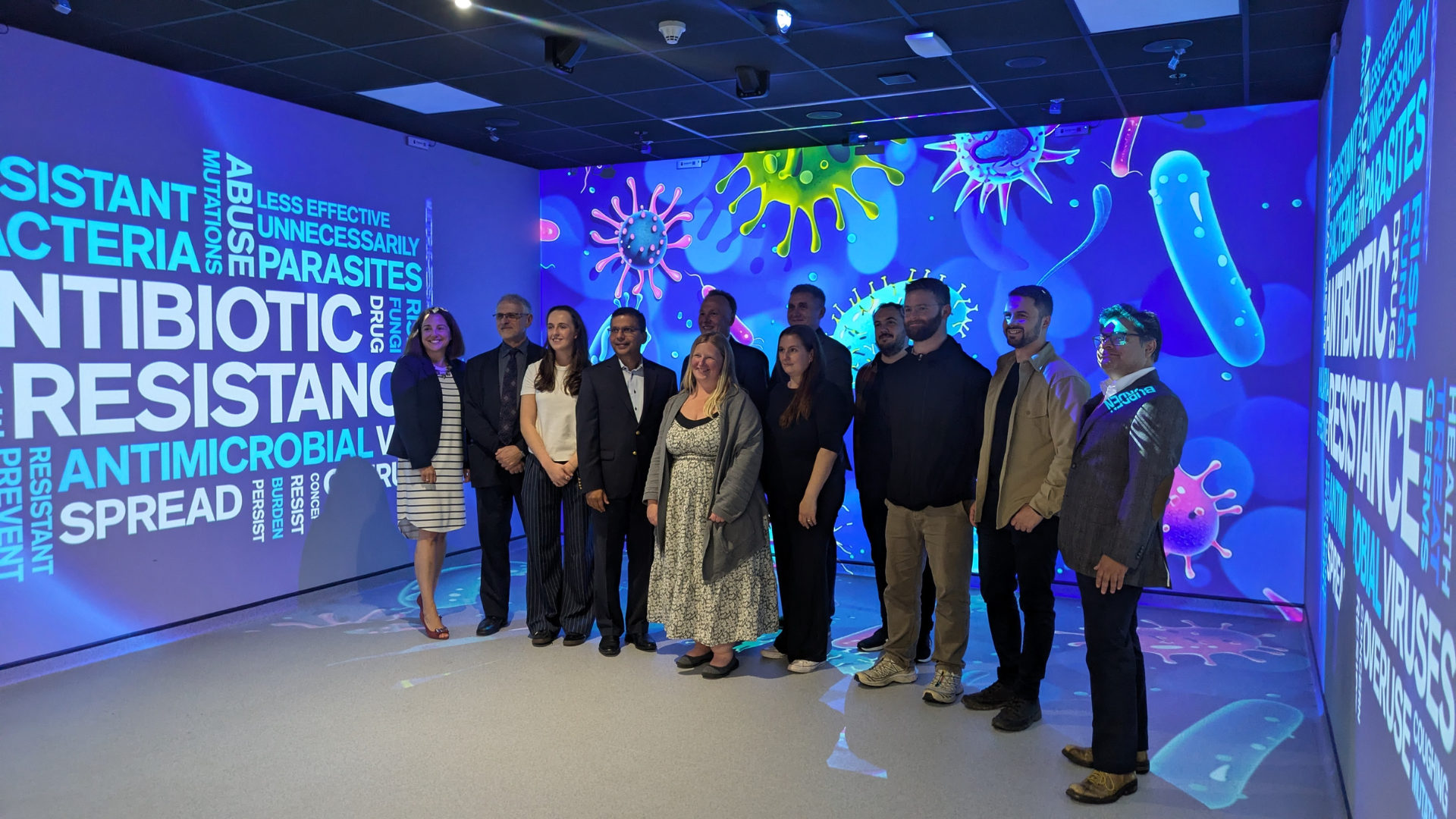
Until 15 September, W5 is hosting Step Inside: The World of Antimicrobial Resistance, a brand-new immersive exhibition developed in partnership with Queen’s University Belfast’s Wellcome-Wolfson Institute for Experimental Medicine (WWIEM).
Antimicrobial resistance (AMR) is one of the most urgent global health challenges of our time. It occurs when bacteria and other microbes adapt to resist medicines that are meant to treat them. As a result, infections become harder to cure, increasing the risk of serious illness.
This exhibition, running at the Immersive Space on Level 1 behind the Coffee Lab, brings cutting-edge biomedical research to life through a mix of interactive displays and a specially developed animated film. Visitors will discover how resistance develops, why it matters, and the pioneering work researchers in Belfast are doing to tackle the problem.
Co-created by W5’s Creative Team, leading academics from WWIEM, and Queen’s interdisciplinary sound and music research centre SARC, the exhibition combines scientific expertise with innovative storytelling and design. The result is an engaging and accessible experience that not only explores the scale of the challenge but also shines a spotlight on world-class research happening right here in Belfast.
Victoria Denoon, Head of W5 Experience, said: “By working directly with researchers, we’re able to co-create experiences that are scientifically accurate, immersive, and meaningful. AMR is a topic that affects us all, and this exhibition helps demystify the science while showcasing the incredible work happening right here in Belfast.”
The launch event on 1 September featured talks from leading researchers and a preview of the exhibition in W5’s immersive classroom, showcasing the collaborative spirit behind this initiative.
Step Inside: The World of Antimicrobial Resistance is part of a broader strategic collaboration between W5 and WWIEM, which began in 2022. The partnership aims to make science more accessible, build public understanding of biomedical research, and strengthen the connection between research and society.